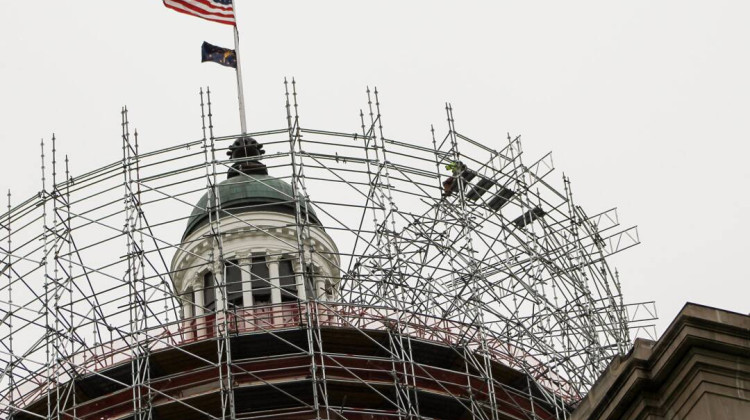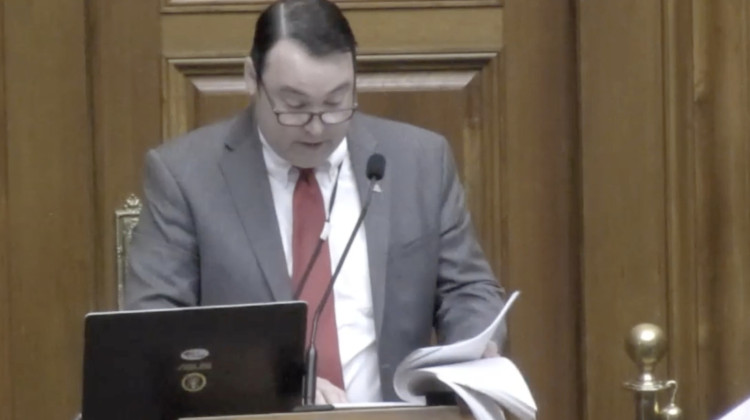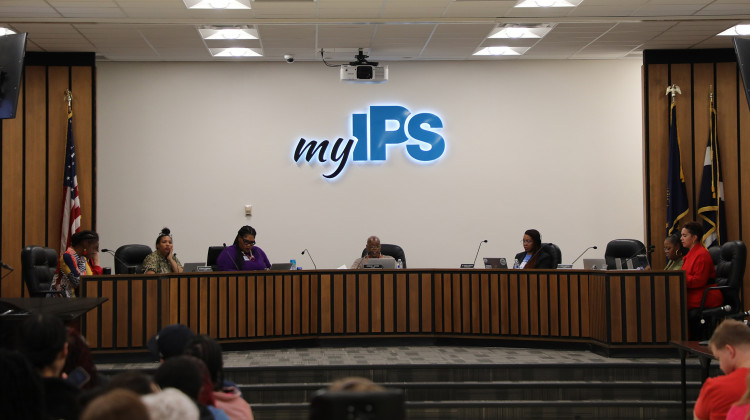
EMS instructor Melissa Lane said helping students learn how to manage their emotions is essential to keep them – and the people they might serve – safe in emergency situations.
Justin Hicks/IPB NewsEducators and experts agree social emotional learning, or SEL, has been – and continues to be – an essential part of what schools do. As many work to combat misinformation about SEL's value in schools, educators are pointing out its real-world impact.
Specifically, career-technical educators agree that it's an essential building block for students' success, especially at their future jobs.
Indiana includes three social emotional learning competencies in the state's employability skills standards: regulation, connection and collaboration. They aim to help students manage their own emotions, work better in teams, and network with people across different cultures and social backgrounds.
Patrick Biggerstaff is the director of the Area 31 Career Center programs in Indianapolis. He said social and emotional learning opportunities help students become better employees and successfully complete their CTE coursework.
He said they're also vital for students' success in traditional school settings.
"These ideas of connection and regulation and collaboration need to exist and be supported in every learning environment, in every school, in every home across the country," he said.
READ MORE: Here's how one expert describes social emotional learning and its effect on students
Join the conversation and sign up for the Indiana Two-Way. Text "Indiana" to 73224. Your comments and questions in response to our weekly text help us find the answers you need on statewide issues.
Melissa Lane is an emergency medical services instructor at the Area 31 Career Center. She said social emotional learning is a central piece to ensure students are prepared to take on high-stress jobs, like those in emergency services.
"If they have never been given those tools and then we put them in high stress situations or these rigorous classes, they crumble," she said.
But misinformation has spread in recent months about what SEL does, and it's value in classrooms.
Indiana Attorney General Todd Rokita's latest update to his Parents' Bill of Rights document suggests, in part, that SEL is being misused by schools to implement lessons on things like critical race theory. It suggests parents should push state lawmakers to change the state's employability skills if they believe those standards are being used to teach CRT.
Derek Marshall is the director of Indiana's Southeastern Career Center. He said that's not what they do – and career-technical educators were using SEL strategies before the state made the employability standards.
"CTE classes are educators of the whole child – we teach them interviewing skills, we teach them job coping skills, we teach them how to be accountable for their own actions – so it was seamless for us," he said.
Marshall, Lane and Biggerstaff all said students who receive social and emotional learning opportunities are more likely to successfully complete their courses, and are better advocates for themselves at work.
Marshall also said employers notice when students have social and emotional skills to cope in the workplace – and when they don't.
Contact reporter Jeanie at jlindsa@iu.edu or follow her on Twitter at @jeanjeanielindz.
 DONATE
DONATE






 Support WFYI. We can't do it without you.
Support WFYI. We can't do it without you.